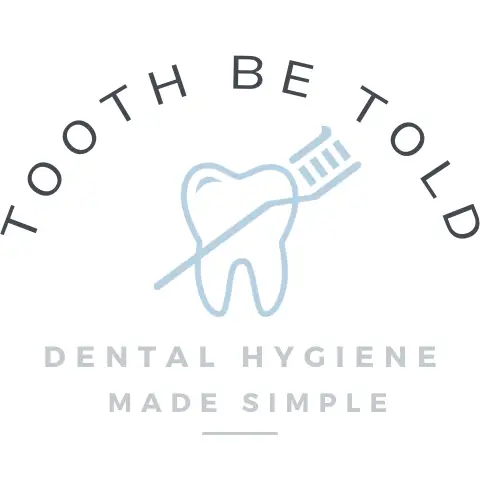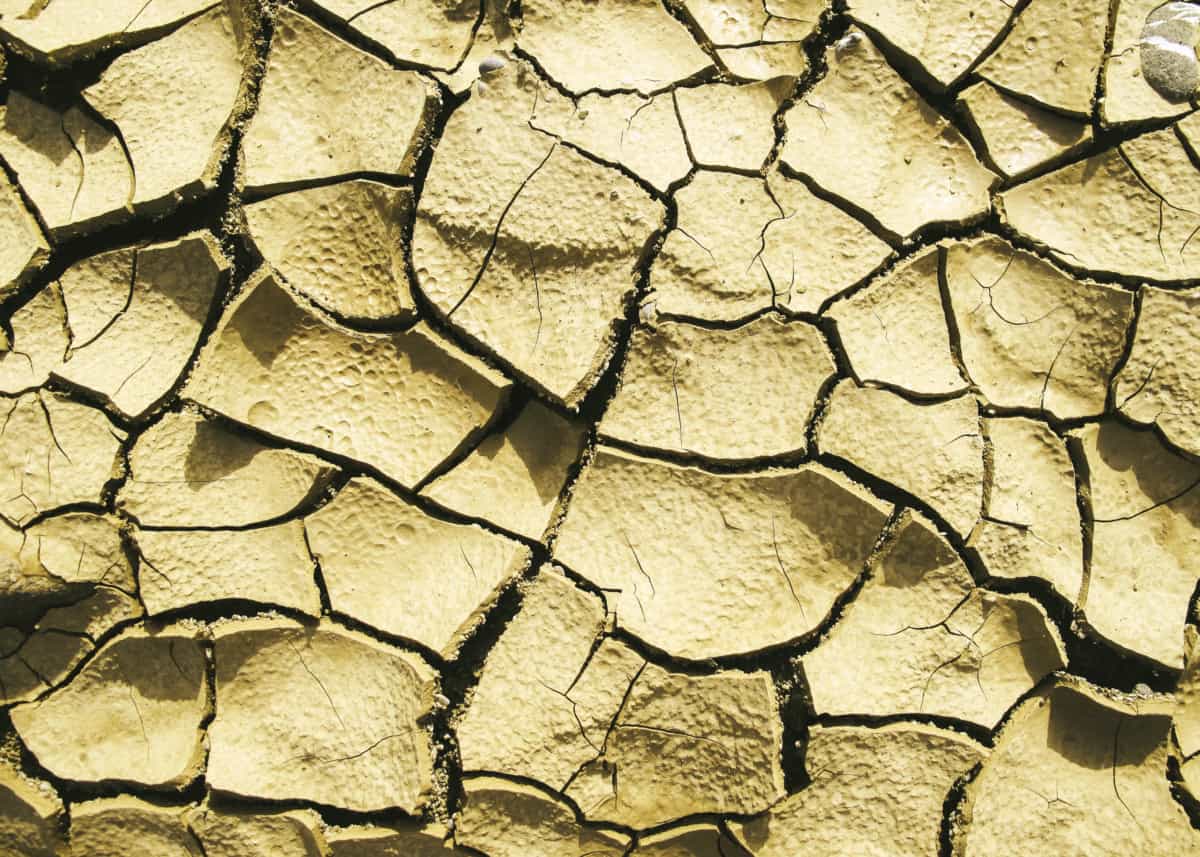
There are so many products on the market for dry mouth, and I get a lot of patients asking me about them and what would be best for their needs. They ask for something they can keep in their mouth that will provide long-lasting relief. And lozenges for dry mouth are the perfect fit. I recommend them to my patients often!
Dry mouth lozenges are long-lasting, providing relief and therapeutic benefits for many hours while being discrete. Lozenges provide relief from dry mouth caused by medications, medical conditions, cancer treatments, and they also improve oral health by maintaining a moist environment.
In this post, I explain why using dry mouth lozenges should be a part of your daily routine, how they work, which ones are the best, and the effects and causes of dry mouth.
For 4 weeks, I interviewed my patients about their own experiences with dry mouth. For my patients who suffer from dry mouth, I asked them about their oral habits, what products they used, and which ones were their favourites.
Keep reading for everything you need to know about dry mouth lozenges, including all the information I give to my patients about dry mouth!
Why are dry mouth lozenges are effective
Dry mouth lozenges are extremely effective at relieving dry mouth and have many oral health benefits and they are listed below;
- They are long-lasting (can last for hours).
- You can use them at any time (unlike toothpaste and mouth rinse).
- They are discrete. People won’t notice it, unlike gum that you actively chew. They can be held in the area between the teeth and cheek (we call this a vestibule).
- Have a therapeutic benefit in preventing cavities, soft tissue inflammation and irritations (gums, cheeks, tongue etc.).
- Activates the cheek muscles to further stimulate the salivary glands.
- Easy to travel with/no liquids. Keep them handy in your purse/car/luggage.
- Recommended by dental and medical professionals.
How do dry mouth lozenges work?
Dry mouth lozenges and other dry mouth products work by stimulating your salivary glands to make more saliva. Lozenges are perfect because the effects last much longer than other products.
As they dissolve, they coat the mouth to protect against cavities and acid wear/erosion and provide a moist environment. Lozenges can help with swallowing and speech as the effects last longer than other dry mouth remedies.
The main ingredient that has the most therapeutic effect is xylitol. The taste of xylitol is sweet and refreshing, which stimulates the nervous system because it thinks you are eating sugar, so the body will produce more saliva to help rinse the sugar away to protect the teeth and tissues in the mouth!
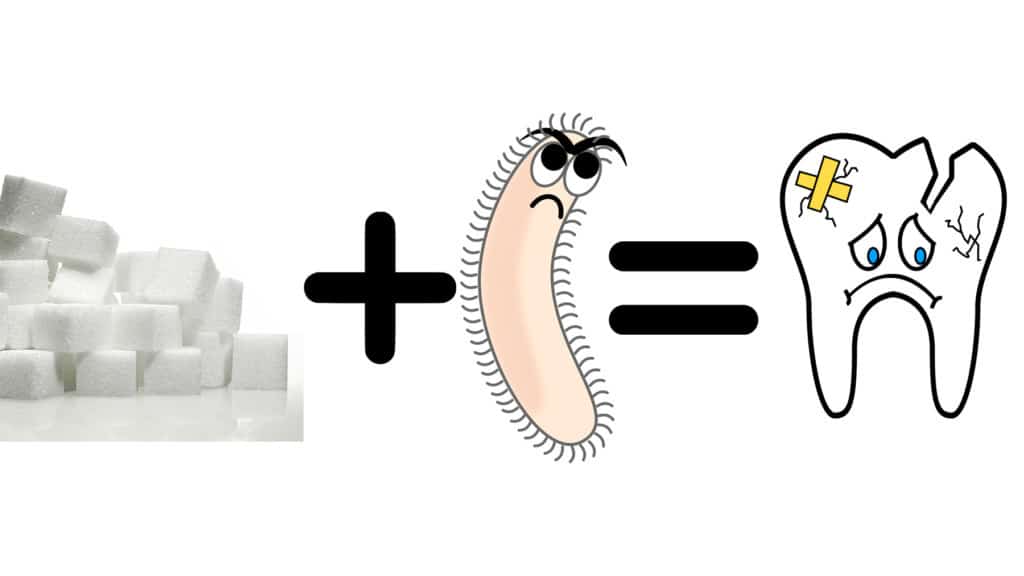
The xylitol inhibits the bacteria from multiplying and creating a more acidic environment. The bacteria in our mouths cannot digest xylitol, which prevents them from proliferating and producing acid to cause cavities.
Read now: How Can I Protect My Teeth From Dry Mouth? 18 Ways
IMPORTANT NOTE: You have to be careful which lozenges you buy. There are many lozenges and dry mouth products on the market that don’t have enough active ingredient (xylitol) for them to have a therapeutic benefit.
To get the most therapeutic benefit, you must consume at least 6 grams of xylitol daily to reduce tooth decay. That is why you must be aware of the products you buy!
Here is a study, “The effect of xylitol on dental caries and oral flora ” if you want to read more in-depth on xylitol.
” if you want to read more in-depth on xylitol.
The best dry mouth lozenges on the market
The best dry mouth lozenges on the market and that I recommend to my patients and family are the following 3 products;
These lozenges come in a pack of two, so you get a better bang for your buck. These are mint flavoured. They have a ⭐️ 4.5-star rating.
2. ACT lozenges
These lozenges are honey-lemon flavoured. They have a ⭐️ 4.5-star rating.
3. TheraBreath lozenges . (certified Vegan, Kosher, gluten-free and MADE IN CANADA)
. (certified Vegan, Kosher, gluten-free and MADE IN CANADA)
These lozenges are Tart Berry Flavour. They have a ⭐️ 4.5-star rating.
All of the lozenges listed above will satisfy your needs, but it depends on what flavour you want. All of them are rated the same, provide equal effectiveness, and all have a therapeutic level of xylitol in them.

There is another product on the market that I frequently recommend and even use myself. OraCoat Xylimelts is a pastille type of lozenge that actually adheres to the gums and slowly dissolves over 1-3 hours.
What I like about these is that they stick to the tissue, so they are not moving around your mouth like a normal lozenge.
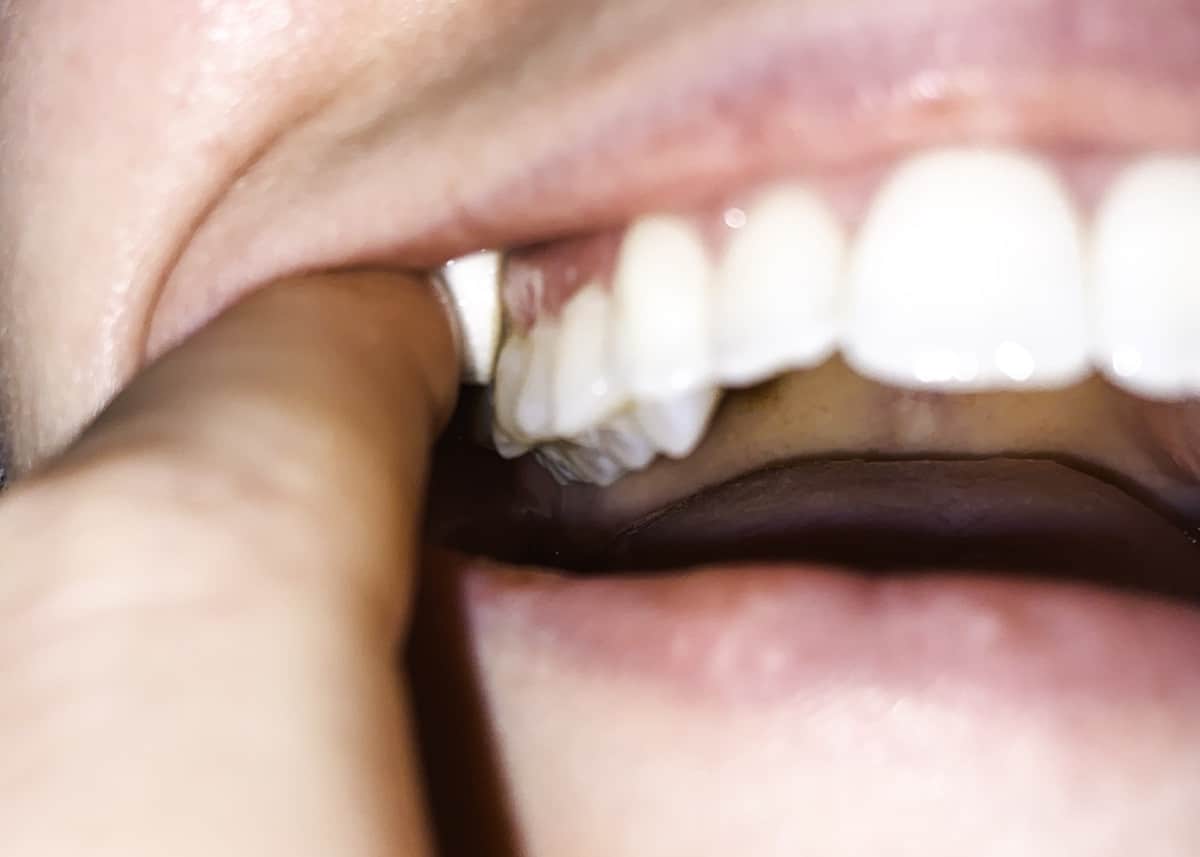
You can find my whole arsenal of dry mouth products that I recommend and use myself in the link following! Dry Mouth Dental Must-Haves
What my patients are saying!
I want to give you multiple opinions because multiple opinions are always better than one! So, I decided to gather data from my patients to provide you with the best info you can get!
Over a 4 week period, I asked my patients who suffer from dry mouth what products they use and what products they would be willing to use/try.
Over the 4 week period, I had 30 patients who suffered from dry mouth. I asked them;
- What is your dry mouth caused by?
- Medications or
- Medical condition/treatment (example; anxiety, diabetes, radiation therapy, surgery, CPAP use for sleep apnea)
- Have you ever tried dry mouth lozenges to relieve symptoms of dry mouth? If yes, would you use them again?
- For those who answered no, would you try them? (I was not giving out samples, so there was no bias)
Here are the results:
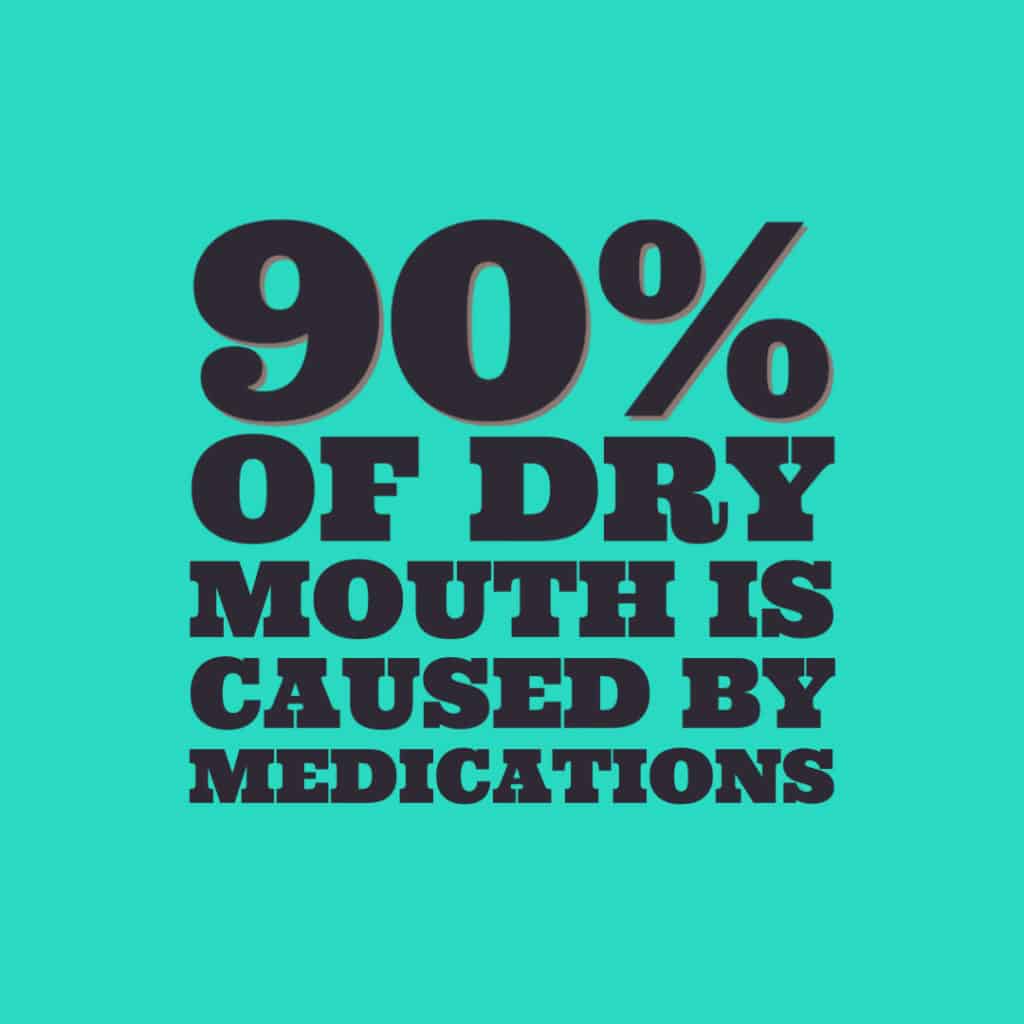
27/30 patients (90%) had dry mouths due to medications that they take.
3/30 patients (10%) had dry mouth due to medical conditions/treatments (ex., radiation therapy and surgery).
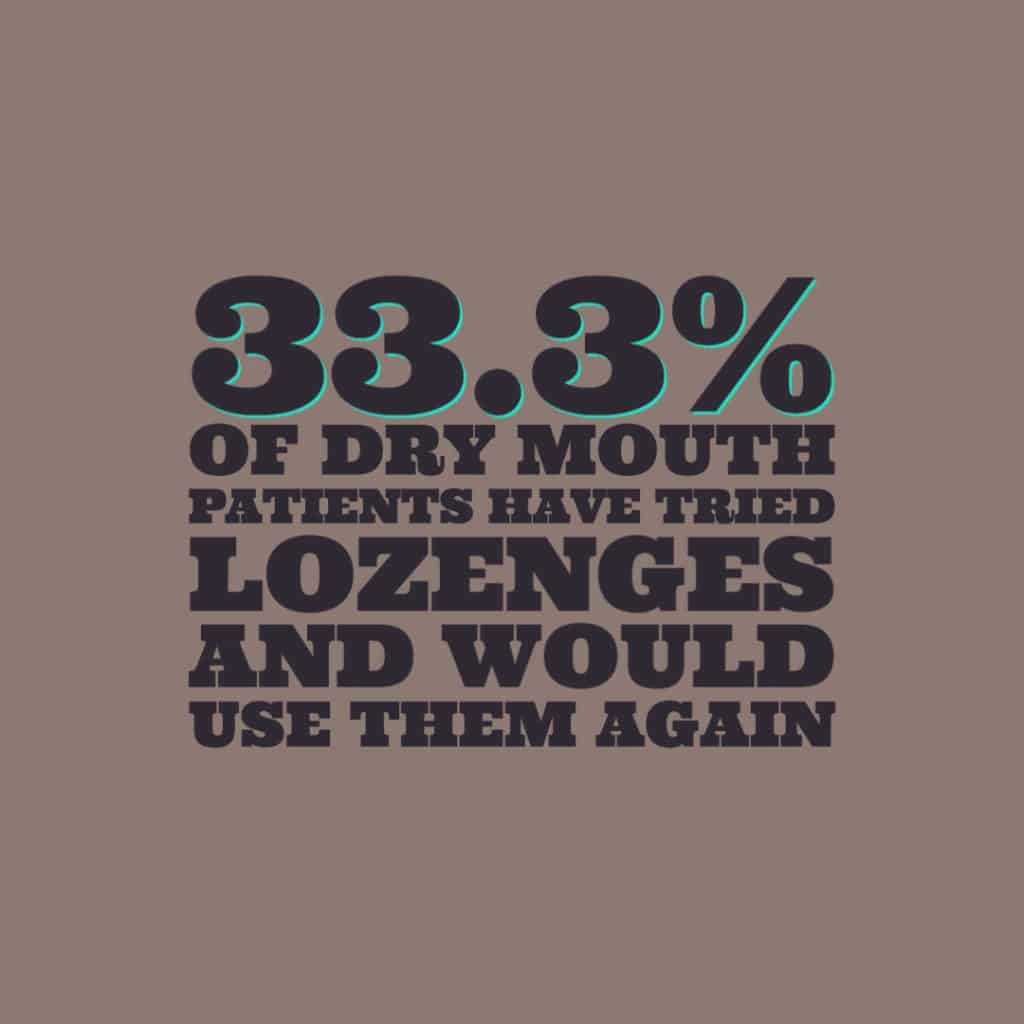
10/30 patients had used dry mouth lozenges and liked them enough to use them again.
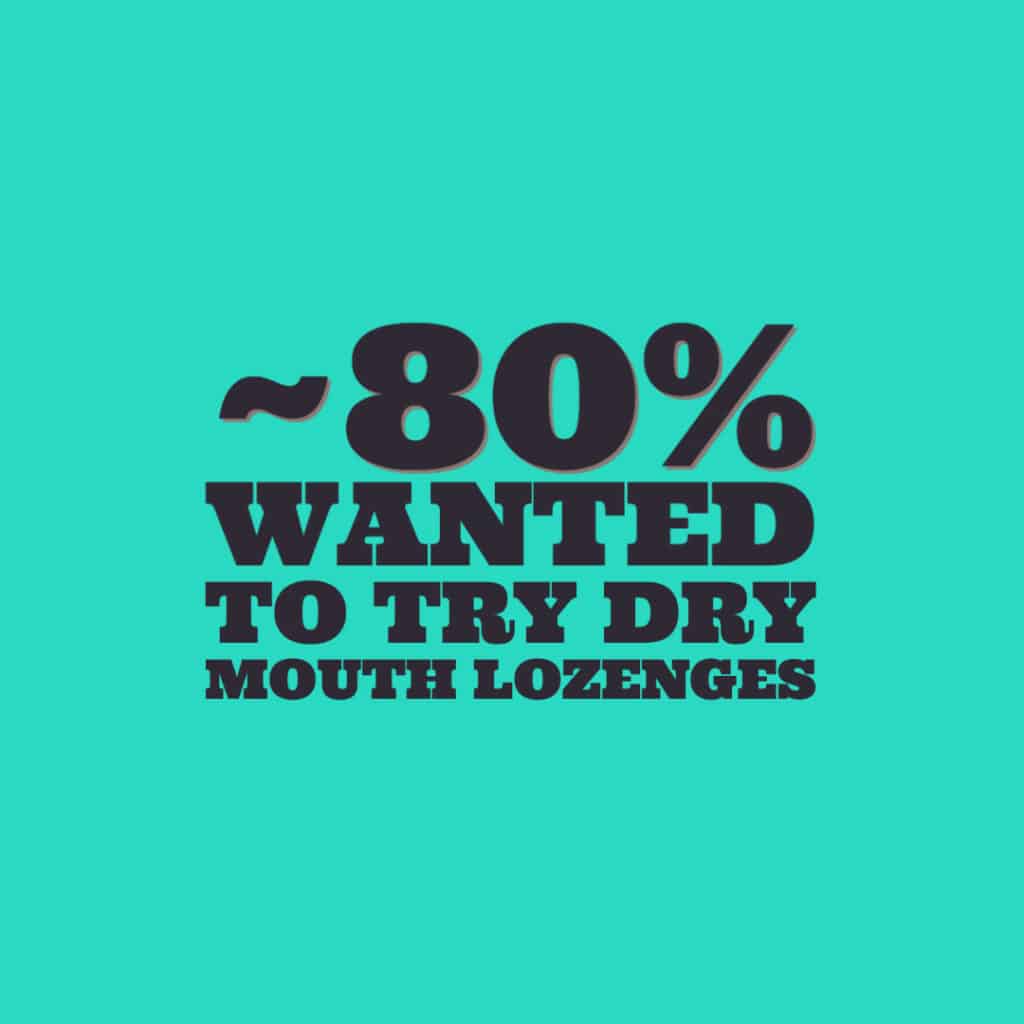
The remaining 19 patients had never used a dry mouth lozenge before, and ~80% (15 patients) of them said they would be willing to try them. The other ~20% (4 patients) were happy with the product they were using already.
Other information was gathered from my patients.
From further questioning my patients, some didn’t even know that lozenges were an option, and they were unaware of all the different dry mouth products on the market. They were only using one or two products that had been recommended to them or not using anything at all.
The main takeaways;
Dry mouth is extremely common, with many people suffering in silence.
The most popular products are mouth sprays (here is one linked on Amazon) and gum. Lozenges work best for those who have diminished saliva, with still enough to dissolve the lozenge.
The lozenges were not a good fit for people with more severe dry mouths. This is because the lozenge needs SOME moisture in the mouth to start to dissolve and work.
Side effects of dry mouth lozenges
Most dry mouth remedies contain xylitol. Too much xylitol can cause some gastrointestinal issues and result in diarrhea, but it takes A LOT. If you are worried about this, ween yourself on to using xylitol products and don’t ingest a whole bag of gum or package of lozenges in one day. Gradually increase the amount you use over time.
Dry mouth products without xylitol
Good old-fashioned olive oil and coconut oil can help relieve dry mouth’s effects! These oils provide very good lubrication and benefits for not only your mouth but your whole body. Using oils for lubrication can improve your oral health and prevent cavities and gum disease.
Olive oil has so many benefits, and one of them is that it can help relieve dry mouth symptoms. I have had patients who keep a small bottle of organic cold-pressed olive oil with them to help with their dry mouth. All you need to do is use 2-4 drops of it on your tongue. The olive oil will stimulate your salivary glands to produce more saliva and keep things nice and moist.
Coconut oil is the same; you only need a tiny amount to achieve the benefits. Below is the brand of coconut oil that I use daily for cooking, eating, and sometimes to relieve dry mouth! This coconut oil is USDA Organic, Non-GMO, Vegan, Kosher, non-hydrogenated and contains no cholesterol.
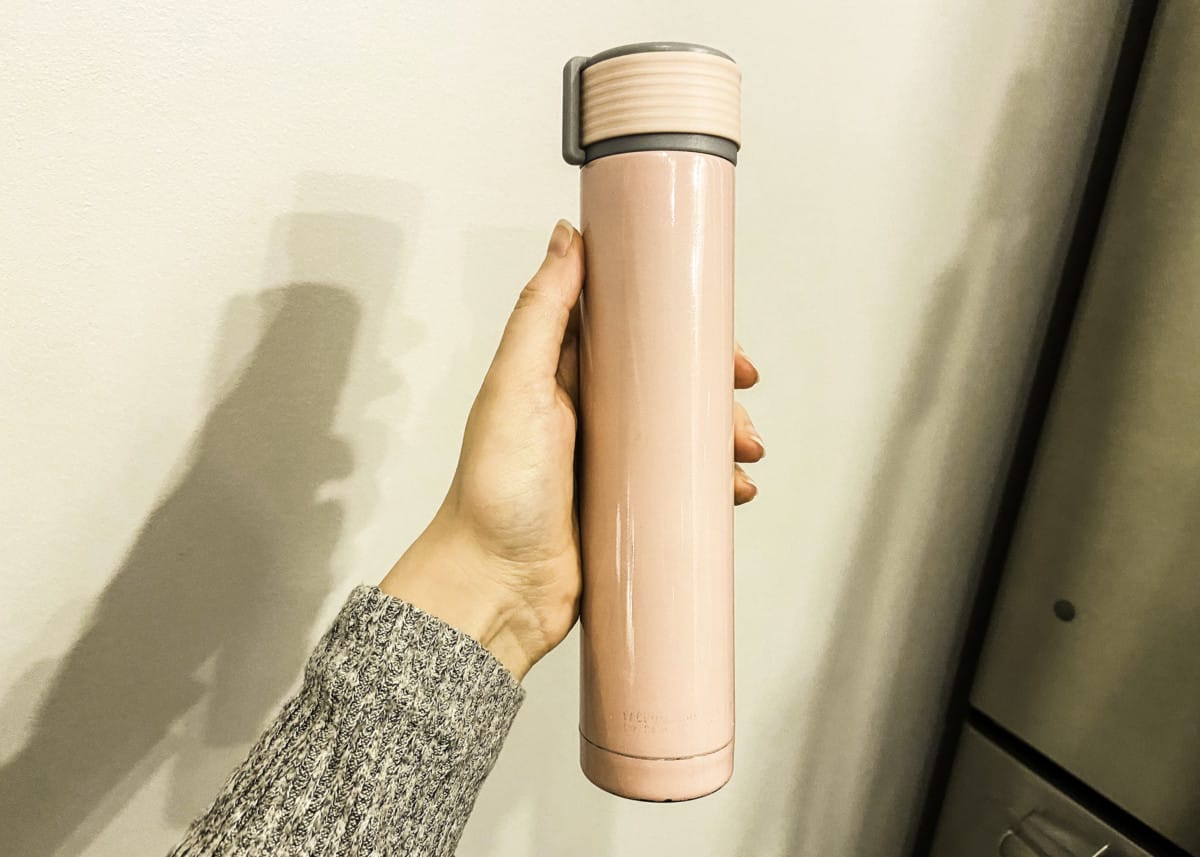
Other helpful tips to alleviate dry mouth
Have a water bottle with you wherever you go!
I know for myself and my mother (we both have dry mouths) and go nowhere without a water bottle. I know this is a shameless link to a water bottle because of how many are there on the market but just take a look because I am obsessed with it.
This water bottle is 8 oz, the perfect size for me when I am running errands or going out quickly. My mom got it, and when I saw it I couldn’t resist!!! I got the pink one, as seen in the photo a bit above! I get compliments on it all the time… and who compliments a water bottle?!
Have fluids with meals
Try and have some water when you are eating. It will help to break down your food and help you swallow it. Only have water and avoid sugary drinks such as juice, milk, and non-dairy drinks.
Increase humidity in your bedroom and home
One of the best things for dry mouth (especially if you sleep with your mouth open) is to get a humidifier for your bedroom. The increased humidity will prevent your mouth from drying out as much.
You can find the humidifier that I use on my Dry Mouth Dental Must-Haves
page! It has been a life-changer!
Your diet matters
It’s not just about the amount of sugar you are eating, but the amount of time spent eating the sugar. Take a chocolate bar as an example. You could sit and eat the chocolate bar in one sitting, eating it in 5 minutes. Or you could have a bite of the chocolate bar every 30 minutes for a few hours.
It’s better to eat something all in one sitting rather than snacking on it over a longer period of time.
Stay away from caffeine, alcohol, salt, and dry foods like crackers. They can all give you a dry mouth!
Talk with your dental professional and medical doctor about your dry mouth
Your dental/medical professional knows who you are personally. The advice and treatment they can offer you will be 100% tailored to you. They may have advice that you can’t find online.
Having regular dental appointments keeps on top of your oral hygiene, discovering cavities early, and preventative treatments are performed such as cleanings and fluoride application.
Oral effects of dry mouth (xerostomia)
We need to understand what dry mouth does to the mouth. It hurts me to see a patient come in with an issue that could have been prevented!
A dry mouth can make swallowing, speaking and eating difficult and can cause anxiety. I know in the past, when I’ve had to do public speaking, my mouth would get so dry, you could tell when I was speaking, and that in turn, just made me way more anxious.
Saliva plays a huge part in protecting our mouths. Below is a list of how dry mouth affects our mouth;
- bad breath
- increased risk of cavities
- increased risk of gingivitis and periodontitis (gum disease)
- increased risk of mouth sores
- increased risk of yeast infections
- increase in plaque
- dry and cracked lips
- difficulty swallowing which can lead to poor nutrition
- problems with denture fitting
The consequences of the things listed above can be extremely expensive and irreversible damage can occur.
Read Now: Is Bad Breath Embarrassing? Signs, Causes and What to Do!
Causes of dry mouth
Dry mouth can be caused by a multitude of things that I go over below. Some of them may even surprise you! I know I was when I learned all of them in school!
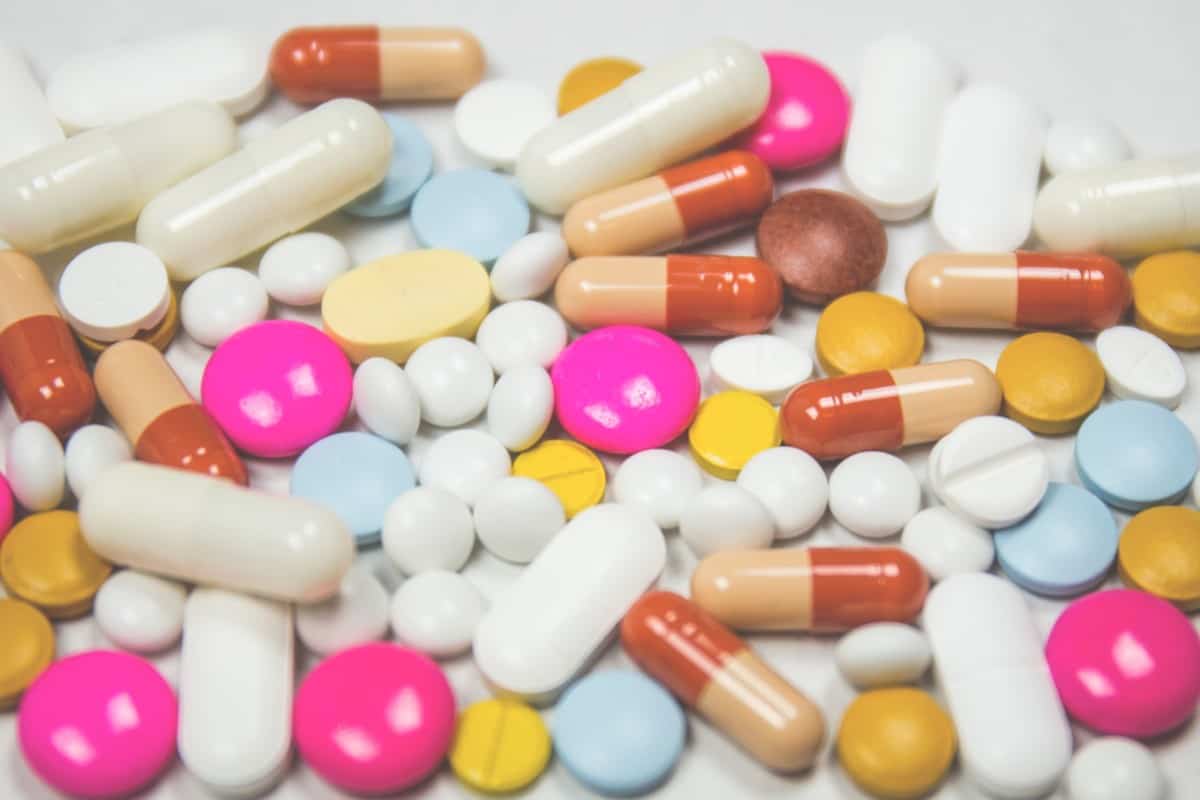
Medications
Over 400 medications cause dry mouth to various degrees. Some of these medications cause dry mouth because they have an impact on our sympathetic nervous system, which can decrease the amount of saliva that our salivary glands produce.
Groups of medications that can cause dry mouth are;
- Antidepressants/Anti-anxiety medications/antipsychotics
- Allergy medications (antihistamines)
- High blood pressure and cardiac (heart) medications
- Inhalers
- Alzheimer’s medications
- Parkinsons medications
- Some pain medications (specifically narcotics)
- Anti-motion sickness (Ex. Gravol)
- Nausea and diarrhea medications
- Seizure medications
- Acne medication
Medical conditions that contribute to dry mouth
Sjögren’s syndrome
Sjögren’s syndrome causes extreme dryness throughout the entire body, including the mouth, for those who suffer from it. Because of the dryness, people who have Sjögren’s syndrome are more prone to dental issues due to a lack of saliva.
You can read more on Sjögren’s syndrome here from the Sjögren’s Foundation.
from the Sjögren’s Foundation.
Diabetes
Diabetes is associated with higher blood sugar levels, and there is a theory that it can cause dry mouth. But mostly, it is caused by medication side effects.
You can read more about diabetes and oral health here from the American Diabetes Association.
from the American Diabetes Association.
HIV
HIV is not one that we think of as causing dry mouth, but a side effect of HIV is that it can cause swelling of the salivary glands. Because the salivary glands swell, it can reduce saliva production.
Anxiety
For people who suffer from anxiety, dry mouth can be either a short-term effect or a more chronic issue. When someone has a more severe anxiety episode, the mouth will become drier along with a faster pulse, sweating and agitation/restlessness.
I am one of those people. When I have a lot of anxiety, my mouth is like the desert!
Medications used to treat anxiety can often cause dry mouth, so people who suffer from anxiety should be aware of the oral implications.

Medical treatments, including surgery to remove salivary glands
Sometimes because of certain illnesses, salivary glands are removed. If only one is removed, sometimes there won’t be a huge noticeable difference in the amount of saliva.
Also, any radiation that one receives around the head and neck can have devastating effects on the salivary glands and leave people with essentially no saliva at all. I have a few patients who always have a water bottle with them at their dental appointments and need to take a sip every few minutes.
Sleep apnea sufferers who wear a CPAP are more prone to dry mouth problems. In a post I wrote, you can read about CPAP causing dry mouth below!
Read Now: Dry Mouth With CPAP: Prevent and Eliminate Dental Problems
Diet
We have heard about certain food and drinks being bad for our teeth and how they play their part in cavity formation. However, some food and drink cause dry mouth because they make us more dehydrated.
Food and drink higher in salt, caffeine, sugar, alcohol, and protein all contribute to dry mouth by making you more dehydrated.
Fact: Asparagus and parsley are diuretics which means they take water from your body and make you more dehydrated!
Dehydration
I think we all have those days when we just do not drink enough water. But if you chronically do not have enough fluids or have a diet higher in salt, caffeine, sugar, alcohol, and protein, you are at more risk of being dehydrated.
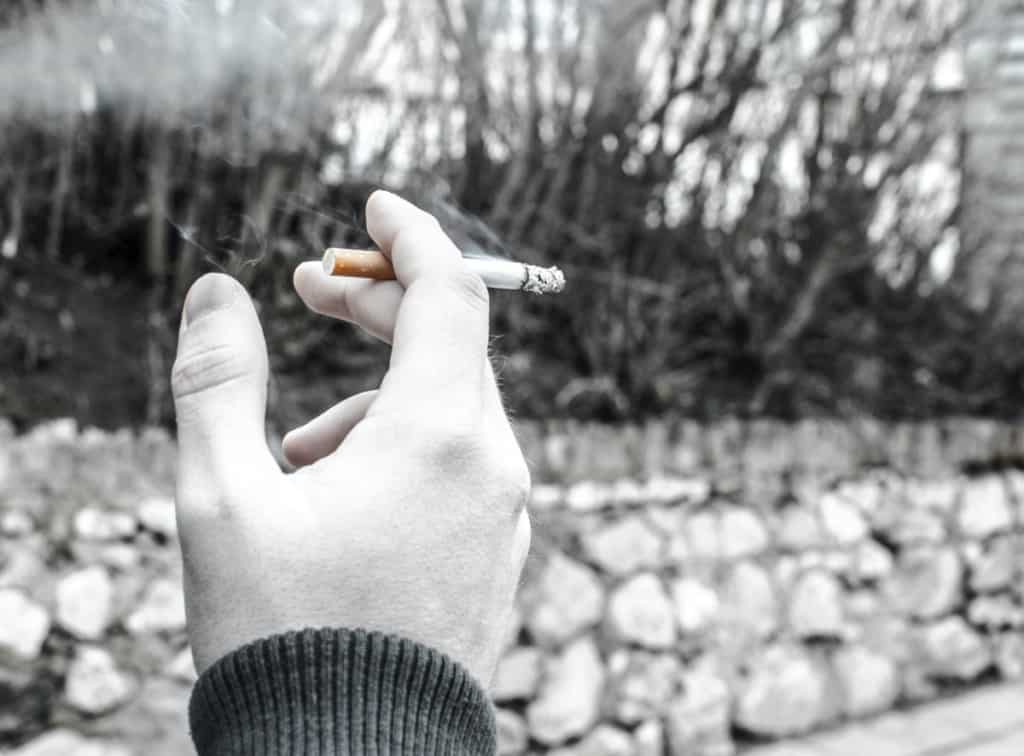
Oral habits
Habits such as smoking and vaping cause dry mouth because of the heat produced as well as the intake of air through the mouth.
Mouth breathing is another oral habit that causes dry mouth. Most people do not even know that they are mouth breathers, and it often only occurs at night when they are sleeping. So if you think you are a mouth breather, you could ask your partner (or someone who sees you sleep) to observe you and let you know if you breathe through your mouth at night.
There are some telltale signs if you don’t have anyone to let you know if you breathe through your mouth. Do you wake up during the night looking to quench your thirst? Is your mouth pasty/dry when you wake up in the morning? These are both signs that you may be breathing through your mouth at night!
Nerve damage – the signals don’t reach your brain to make more saliva
Damage/trauma to the head and neck can disrupt the signals to your brain that you have a dry mouth and you need more saliva. This is an extremely rare cause of dry mouth but never the less, important to touch on.
I really hope that all of this information has helped you!
Have a great day, and keep smiling!
Holly 🙂
